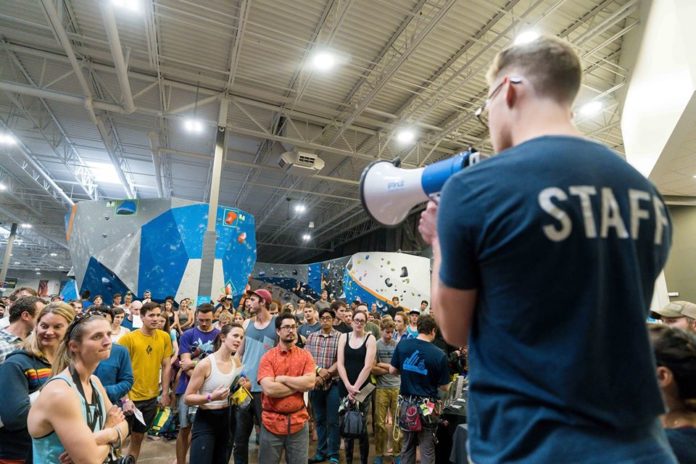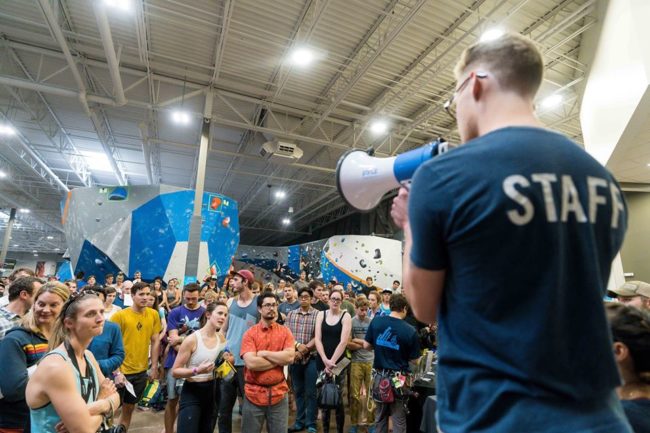
The global Coronavirus (COVID-19) pandemic is adversely impacting virtually all corners of the indoor climbing industry―some in obvious ways, but others less so. Even businesses one might consider less vulnerable are feeling the impact of stay-at-home home orders and mandated closures. Below, we highlight a few developments that caught our attention recently.
Digital Publications
At the beginning of this month, Climbing’s editor, Matt Samet, sent a mass email out to the magazine’s readership, admitting, “The spread of the COVID-19 virus, the death and suffering it’s causing, and the unprecedented social and economic disruption have in the space of just a few weeks upended everything we know.”
Indeed, publications that offer digital content are probably among the few areas within the climbing sphere that might be expected to thrive amid this crisis—or at least weather the storm. But there are still looming challenges in those areas.
For instance, Samet also stated that COVID-19 has hit Climbing’s freelancers and contributors particularly hard: “They’re seeing regular jobs dry up, having stories that were underway canceled, and are having to scramble to figure out what’s next.” This was followed by an announcement that 25 percent of the new proceeds from Climbing’s $40/year Summit Memberships would go toward supporting freelancers.
With climbing competitions canceled, media in the US and around the world are being resourceful to get through this period. UK Climbing just launched a new video series with IFSC commentators Charlie Boscoe and Mike Langley, for example, who are also admittedly “stuck at home” during this period. The World Cup season won’t begin in April as usual, so the series focuses on past competitions. Similarly, the IFSC is live streaming past events on Facebook and sharing its golden memories on YouTube.
Climbing Gym Owners
Aside from digital media, the COVID-19 crisis continues to wallop gyms. CBJ has compiled a list of resources and myriad gym closures. But one assumption when scanning that long list of gyms might be that certain facilities and franchises are equipped to handle extended closure while others are not. To an extent, there is truth to this, but even many of the most well-known gyms around the country and their owners continue to be negatively affected by long-term shutdown.
In the middle of March, Dustin Buckthal, CEO and owner of The Front in Salt Lake City, wrote on Instagram: “I don’t have a retirement fund. There are no investors in the Front. I do not have a trust fund, I come from middle-class. I personally guarantee every loan…The Front [is] a small business. I am involved in the business every day, 7 days a week. So is my fiancée. We do not have a board to direct us.”
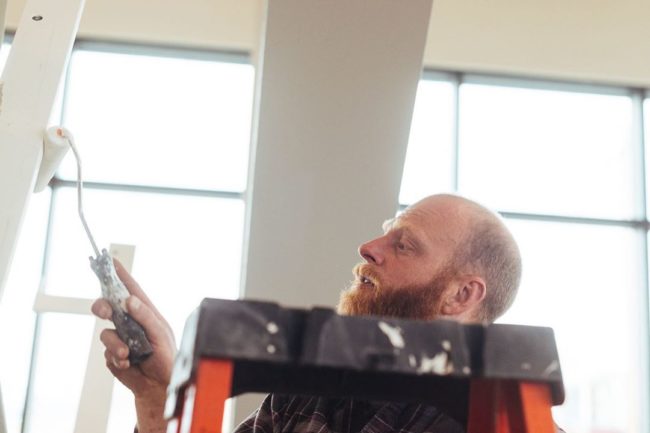
A related concept was included in First Ascent’s Instagram post in March: “First Ascent is a locally owned business with limited resources, and your continued support will help us care for our staff and bounce back when the crisis is over.”
Such posts are reminders that―for all the growth in commercial climbing gyms―many businesses in indoor climbing are still relatively small businesses.
Climbing Gym Operators
The assumption that the largest gyms might be safe from the inevitable industry downturn would be faulty as well. For instance, Earth Treks, which shares a parent company—El Cap—with Planet Granite and Movement Climbing + Fitness, recently used some unique crowdfunding to help pay its staff. The gym ran a Chalk Bag Fund Auction at the end of last month; users could bid on retail items and services in an online silent auction, with proceeds going to paying staff. Earth Treks Golden also announced via Facebook other ways that members could continue “to support…staff and…community,” including opting in to standard monthly billing memberships and prepaying dues for extra credit upon reopening.
“Without all of you, we wouldn’t be this amazing community that we are lucky to call family,” stated the Earth Treks Englewood Facebook page, touting identical support measures. “Thank you for all of the stoke you’re sharing with us during this challenging time.”
Operators of closed gyms around the country have been wrestling with the question of whether to ask members to opt in or opt out of monthly dues during this period. The Pad Climbing, a nonprofit which formed a parent company―Ascent Ventures―with Origin Climbing and Fitness last year, decided to go with the latter. “I am SO grateful to our membership for letting us be the company I have wanted us to be,” says Kristin Horowitz, COO of The Pad. “Our goal is to take care of the people that need it.”
Further east in Wisconsin, Boulders Climbing Gym offers an opt-out program as well, which helps pay for full-time staff and rent. For people whose financial situation has changed, there’s even a “pay what you can” option called Sustaining Memberships. According to Brad Werntz, President of Boulders, both members and non-members have become Sustaining Members during the closure.
Boulders has been hosting daily online training platforms for body-weight workouts and yoga sessions via Facebook and Instagram Live; youth programs were recently added to the mix too. Participants and parents can donate after the sessions through a virtual tip-jar on PayPal. The Pad also shares donation links to the Venmo accounts of its online yoga instructors.
Other gyms are offering gift card and t-shirt packages to help generate funds and encourage climbers through this period. Upper Limits in St. Louis started a #hangtight t-shirt campaign to raise money for paying staff. Nearby in Springfield, Missouri, climbers can buy “quarantraining” t-shirts as part of the #comebackstronger campaign of Zenith Climbing Center. And in Virginia, Rise Up Climbing offers weekly curbside pickup of gear purchases on Fridays.
Climbing Brands
Climbers aren’t the only ones helping their gyms stay afloat. Multiple brands who are able to do so have launched campaigns to direct incoming funds to climbing gyms around the country.
Butora, for example, recently announced a charitable initiative in which specific gym codes could be entered during online checkout and result in 35 percent of a given sale being donated to the customer’s gym of choice. Butora gave gyms around the country unique codes for the program, which runs through April and is being promoted with a #climbers4gyms hashtag campaign.
Eldorado Climbing Walls is offering a similar gym donation. When customers purchase holds, panels or other supplies for a home wall, they can enter the code of their climbing gym and 30% of the sale will go towards that gym. There is no cost for gyms to participate, and customers are encouraged to spread the word if their gym is not yet on the list.
At-Home Climber Fitness
While the nation’s innumerable stay-at-home directives from doctors and government officials has undoubtedly resulted in a massive amount of home training and hangboard sales, there is adversity in that market as well. Tension Climbing, which would otherwise be contributing to the current boom in at-home fitness accoutrements, was forced to close as a result of a government mandate in Colorado.
A later amendment to the mandate permitted Tension to keep fulfilling online orders, but limited manufacturing has made that difficult to continue. “Until we can get our manufacturing back at full capacity after the COVID-19 shutdown ends and replenish our stock, we are temporarily suspending all orders and backorders,” reads Tension’s website.
The slowdown is not just in Colorado. Ohio-based Rock Candy Holds―which provides home wall packs of climbing holds―posted a “COVID-19 Update” on its website too, stating, “Normal turn-around time may be affected.”
How COVID-19 will continue to impact these various areas of the industry is impossible to predict, but CBJ will continue to monitor the situations at local, regional and national levels.
Share Your COVID-19 Experience
There are countless stories like these in our industry, and we appreciate hearing them! Are you leading a climbing gym through this unprecedented period of gym closures? Or, do you work for a gym that is now closed and have a story others could benefit from hearing? If so, please contact us and tell us about it.
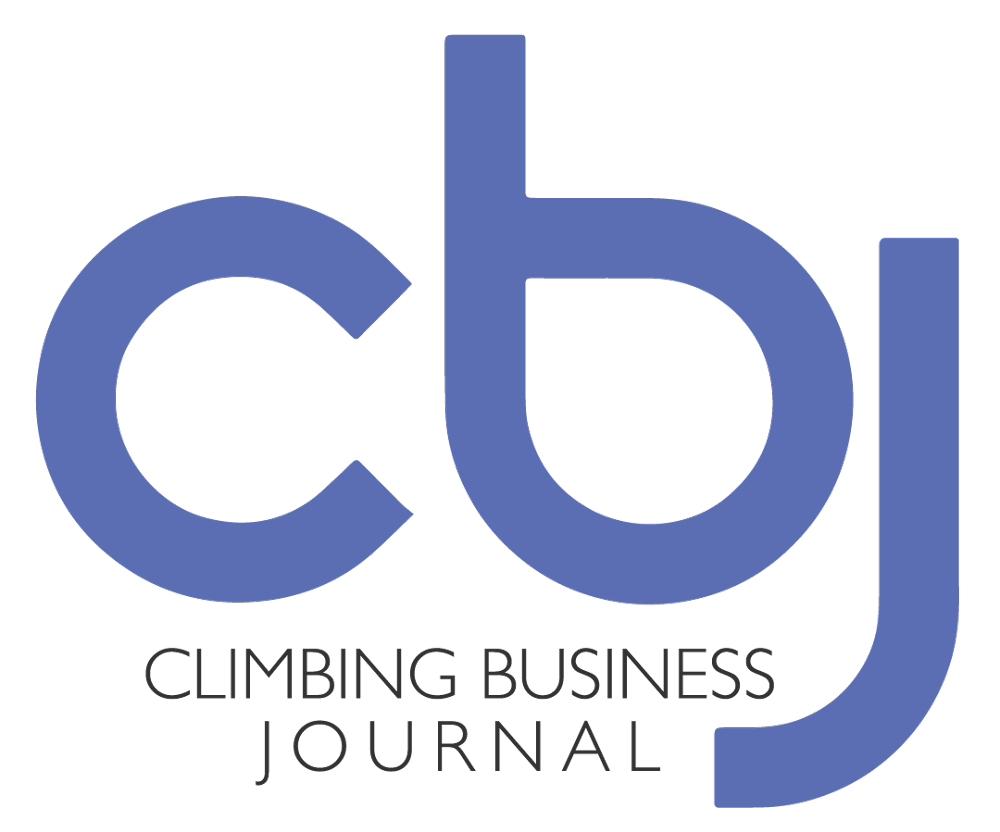
Climbing Business Journal is an independent news outlet dedicated to covering the indoor climbing industry. Here you will find the latest coverage of climbing industry news, gym developments, industry best practices, risk management, climbing competitions, youth coaching and routesetting. Have an article idea? CBJ loves to hear from readers like you!




